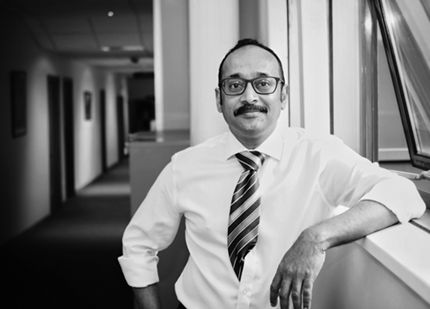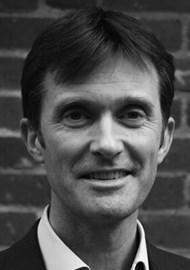Vin Paleri has a central role in BACO International 2018 as the lead of the Academic Committee. Declan Costello caught up with him to discuss the role, and the most academically exciting aspects of the meeting.

What is the international aspect of this BACO?
BACO has always been an international gathering. For 2018, we are going even further by inviting Brazil and India as guest countries, to showcase their best work. Having travelled to these parts of the world, I am constantly impressed by their wealth of experience, thus, the scientific sessions hosted by our guests should offer a truly global feel to the meeting, and foster new networks.
As you prepare for a conference as huge as BACO, how do you approach structuring the programme?
The programme has been built around the learning needs of the attendees. We paid very close attention to the feedback from the last meeting, organised all the individual feedback into themes and went about addressing these themes. Out of this work emerged some of the new sessions you see in the programme. For instance, the collaborative sessions and the update sessions arose from clearly expressed needs by the attendees. I am especially keen for established faculty to learn from other subspecialties. While trainees get a broad overview during their rotations, once a consultant, our practices in university and tertiary centres can be very specialised. The pace of advances means that there will be tips and tricks to be gleaned from these collaborative sessions.
We have incorporated panel discussions in over 50% of the sessions, again as a result of the feedback. Trainees find this a valuable learning experience, and given real time feedback using new technology for BACO International 2018, the faculty will have to be on top of their game!
“I am always taken aback by how a patient’s values, priorities and expectations from treatment can be radically different to that of the treating team.”
Right through the meeting, we have engaged expert patients to tell their story. I am always taken aback by how a patient’s values, priorities and expectations from treatment can be radically different to that of the treating team. By engaging social scientists to bring out patient themes, I anticipate that trainees and faculty will gain insights into this important aspect of clinical practice.
Who are the ‘headline acts’ at the meeting?
This is a difficult question. We have involved each of seven subspecialist societies for their expertise and given them the freedom to attract the top experts in their field for the programme. I know for a fact how much deliberation went into choosing faculty across the various sessions. To my mind, they all are headline acts! Each subspecialty has its own keynote lecturer, and additionally, we have endowed lectures too. I would approach this question in another way, putting myself in the shoes of a participant to BACO International 2018: if you were to list your learning needs for the meeting, and attend those sessions that address your need, I can guarantee you that these will be the true ‘headline’ acts.
Which speakers are you most excited about hearing?
I am especially keen to hear the cross-cutting plenaries. These speakers have been carefully chosen for their expertise in areas that will appeal to a very broad audience. We have Professor Hugh Montgomery, who is not only an intensivist, but also a children’s author and has performed extreme acts of endurance (100km ultramarathons, world record for underwater piano playing, and climbing to the peak of Cho Oyu with the Xtreme Everest research group). Montgomery is known for his pioneering genetic research into the ACE fitness gene, which determines our capacity for either strength or endurance. We have Sir Michael Marmot, Professor of Epidemiology and Public Health, who has done pioneering work on social determinants of health and health inequalities. Given the collaborative theme for the meeting, and the commitment that ENT UK has shown for global health, Professor Marmot’s talk should provide a fascinating insight.
“If you were to list your learning needs for the meeting, and attend those sessions that address your need, I can guarantee you that these will be the true ‘headline’ acts.”
On day 3, we have Mr Lawrence McGinty, the award-winning journalist and broadcaster, former science and medical editor for ITV News, and chair of the Medical Journalists Association. Mr McGinty’s brief is to advise us and provide tips on how physicians should interact with the media, and what the media expects from us. Young research active clinicians will get an insight into how to get the maximum mileage for their work by harnessing the power of the media. In these days where everything in the health service is under a microscope, and the media is eager to pick up any titbit that can be perceived as ‘bad news’, this session will provide pointers on the pitfalls to be avoided when dealing with the media.
What emerging technologies will be covered at BACO? How do you see these changing ENT surgeries in the coming years?
Within my own field of head and neck cancer surgery, I can confidently say that the emerging technology and clinical trial data will ensure that our current practice for the management of head and neck cancers will be outdated within the next decade. I am reliably informed that this pace is replicated in other areas of ENT practice too. We have sessions on artificial intelligence, machine learning, big data, immunotherapy and hands on sessions for robotics within the programme.





